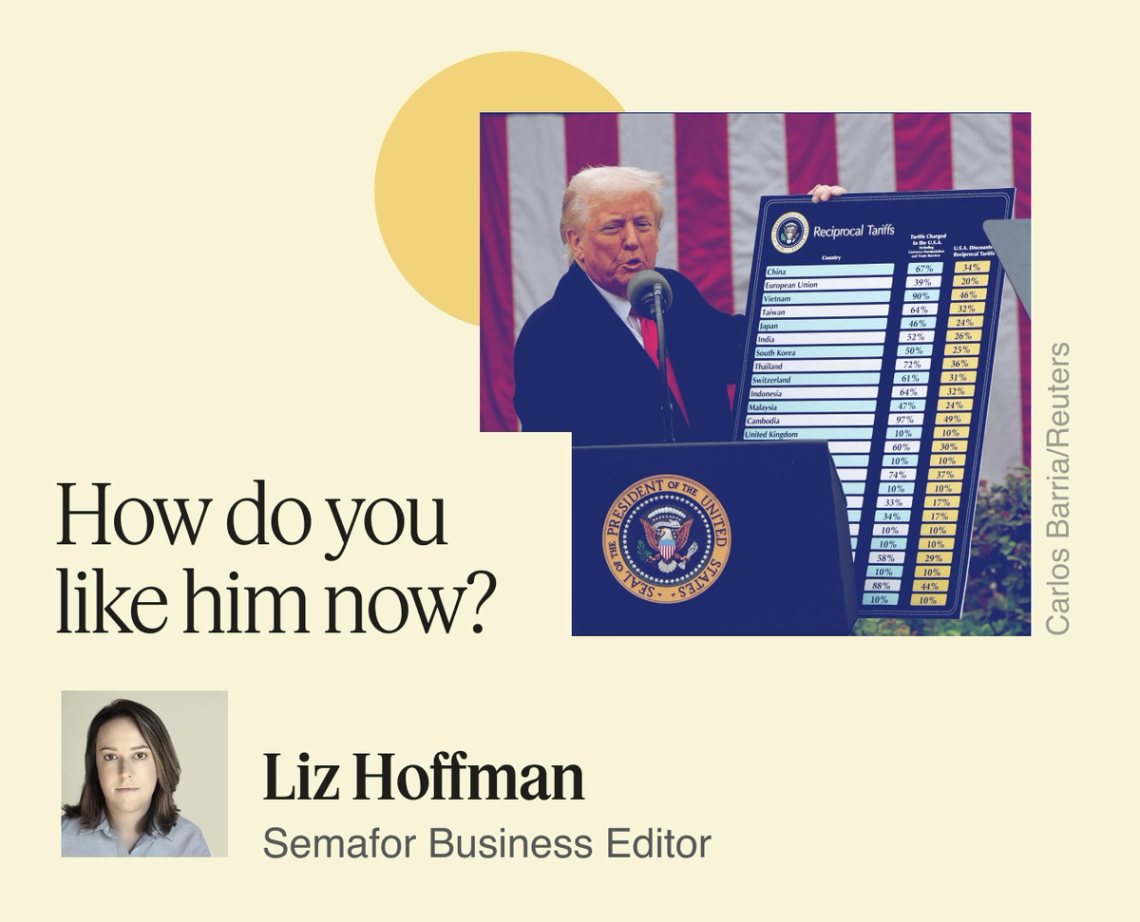 “Oh sh*t,” Restoration Hardware CEO Gary Friedman said on an earnings call yesterday evening, upon learning that his shares were down 30% after the White House made its Liberation Day splash. “I just looked at the screen.” That fairly captured the feeling in the business world, which was shocked by the arrival of tariffs that President Donald Trump has talked nonstop about for more than a year. Flashback to January, when executives were bankrolling inauguration parades, literally hugging flags, and shouting into the nearest microphone what a bright moment it was for America. It wasn’t just their MAGA conversion that struck me, but how unshackled they felt expressing it. “It’s fascinating,” I wrote at the time, “to watch everyone say the quiet part out loud.” Fast-forward three months and it’s now the loud part, whispered despondently. This is not going well, murmur CEOs with thousand-yard stares, as if what’s happening now was some sort of edge case that couldn’t have been predicted. Steep tariffs on China were to be expected, and smart companies have been rerouting their supply chains for years now. But their solutions — Vietnam, India, and Mexico, among them — are now equally bad. The only safe haven, by White House design, is the US. More troubling for business leaders is that the basic barter system that has driven the Trump administration’s policies so far seems to have broken down. Israel preemptively canceled all its tariffs on US goods earlier this week, hoping to be spared. It wasn’t. India Prime Minister Narendra Modi’s cozy relationship with Trump — remember the “Howdy, Modi!” rally? — had no effect. The lesson from Trump’s first 73 days was that everything can be bought. Paul Weiss’ price for peace was $40 million. Skadden’s was $100 million. (Heck of a Series B round.) ABC News’ was $15 million. But that naked commercialism may be cracking, too. If Chevron’s adopting Trump’s “Gulf of America” language earned any favor, it hasn’t been quickly returned in the company’s Venezuelan drilling concession mess. Pfizer’s decision to patronize Mar-a-Lago, and its CEO’s Biden-bashing, haven’t dented Trump’s enthusiasm for gutting health care research or reopening vaccine probes. Meta is hoping that Mark Zuckerberg’s political conversion and his $1 million personal check to Trump’s inauguration will buy it a way out of antitrust trouble. They may all be disappointed. |